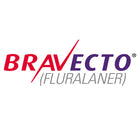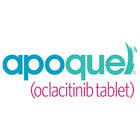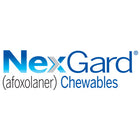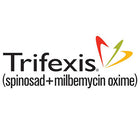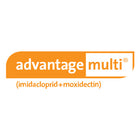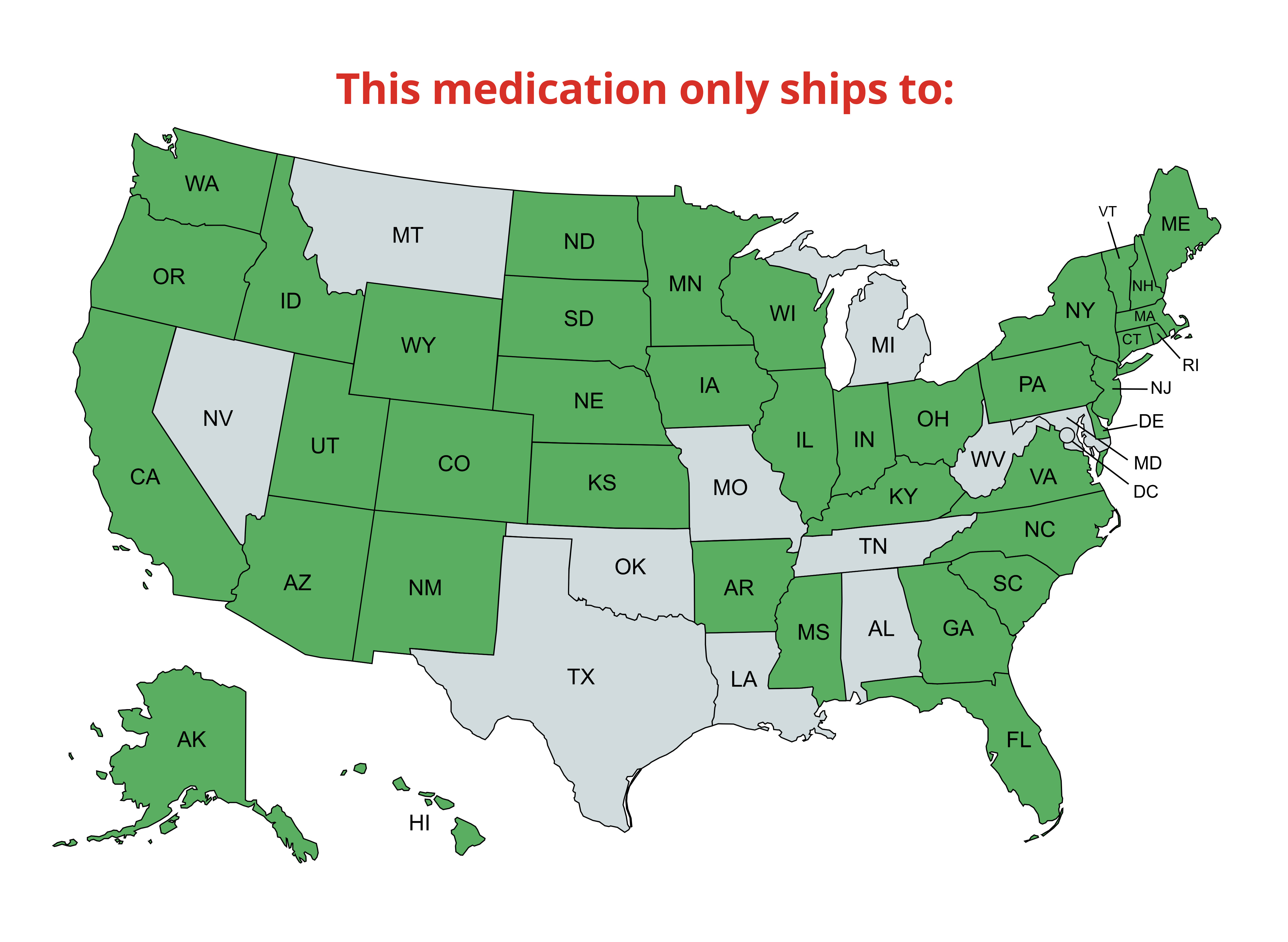
Quellin (Carprofen) Soft Chews for Dogs, 25mg
Quellin soothes the discomfort and inflammation due to arthritis. It also treats other joint problems. This helps your dog keep a regular activity level. It also improves its quality of life. Besides the drug is administered to minimize pain related to surgeries. Quellin is a non-steroidal anti-inflammatory drug, also known as an NSAID.
Such drugs hamper the cells' creation of prostaglandins. Prostaglandins are particular chemicals crafted by cells to perform specific operations. An example of such an operation is kick-starting inflammation. Various NSAIDs don't react identically in different dogs hence, the importance of careful consideration.
If you suspect your dog is enduring arthritis pain discuss the usage of an NSAID. This could include quellin, with your veterinarian. Quellin is specifically designed for dogs. The product's safety for dogs less than 6 weeks old hasn't been evaluated.
- Savory meat flavor is offered in a soft chewable tablet.
- Dogs accept this tablet as a treat. The chewable tablet is scored.
- This is for easy dosing. It can be given with or without food.
Indication:
Carprofen is indicated for the relief of pain and inflammation associated with osteoarthritis and for the control of postoperative pain associated with soft tissue and orthopedic surgeries in dogs.
Prescription items are NON-RETURNABLE and NON-REFUNDABLE.
Please note product may arrive in a Hardy Paw Pharmacy vial, manufacturer packaging is shown for reference.
Dosage and Administration
Always provide Client Information Sheet with prescription. Carefully consider the potential benefits and risks of quellin and other treatment options before deciding to use quellin. Use the lowest effective dose for the shortest duration consistent with individual response. The recommended dosage for oral administration to dogs is 2 mg/lb of body weight daily. The total daily dose may be administered as 2 mg/lb of body weight once daily or divided and administered as 1 mg/lb twice daily. For the control of postoperative pain, administer approximately 2 hours before the procedure. quellin soft chewable tablets are scored and dosage should be calculated in half-tablet increments. Soft chewable tablets can be halved by holding the tablet on each side of the score line and pressing up in the middle to break the tablet into two pieces. Care should be taken to ensure that the dog consumes the complete dose.
Caution:
Federal law restricts this drug to use by or on the order of a licensed veterinarian.
Contraindications:
Quellin should not be used in dogs exhibiting previous hypersensitivity to carprofen.
Warnings
Keep out of reach of children. Not for human use. Consult a physician in cases of accidental ingestion by humans. For use in dogs only. Do not use it in cats.
All dogs should undergo a thorough history and physical examination before initiation of NSAID therapy. Appropriate laboratory tests to establish hematological and serum biochemical baseline data before, and periodically during, administration of any NSAID should be considered. Owners should be advised to observe for signs of potential drug toxicity.
Precautions:
As a class, cyclooxygenase-inhibitory NSAIDs may be associated with gastrointestinal, renal, and hepatic toxicity. Effects may result from decreased prostaglandin production and inhibition of the enzyme cyclooxygenase which is responsible for the formation of prostaglandins from arachidonic acid. When NSAIDs inhibit prostaglandins that cause inflammation they may also inhibit those prostaglandins which maintain normal homeostatic function. These anti-prostaglandin effects may result in clinically significant disease in patients with underlying or pre-existing disease more often than in healthy patients. NSAID therapy could unmask occult disease which has previously been undiagnosed due to the absence of apparent clinical signs.
Patients with underlying renal disease, for example, may experience exacerbation or decompensation of their renal disease while on NSAID therapy. The use of parenteral fluids during surgery should be considered to reduce the potential risk of renal complications when using NSAIDs perioperatively.
Carprofen is an NSAID, and as with others in that class, adverse reactions may occur with its use. The most frequently reported effects have been gastrointestinal signs. Events involving suspected renal, hematologic, neurologic, dermatologic, and hepatic effects have also been reported. Patients at greatest risk for renal toxicity are those who are dehydrated, on concomitant diuretic therapy, or those with renal, cardiovascular, and hepatic dysfunction. Concurrent administration of potentially nephrotoxic drugs should be approached cautiously, with appropriate monitoring. Concomitant use of carprofen with other anti-inflammatory drugs, such as other NSAIDs or corticosteroids, should be avoided because of the potential increase of adverse reactions, including gastrointestinal ulcerations and/or perforations. Sensitivity to drug-associated adverse reactions varies with the individual patient. Dogs that have experienced adverse reactions from one NSAID may experience adverse reactions from another NSAID. Carprofen treatment was not associated with renal toxicity or gastrointestinal ulceration in well-controlled safety studies of up to ten times the dose in healthy dogs.
Carprofen is not recommended in dogs with bleeding disorders (e.g., Von Willebrand’s disease), as safety has not been established in dogs with these disorders. The safe use of carprofen in animals less than 6 weeks of age, pregnant dogs, dogs used for breeding purposes, or in lactating bitches has not been established. Studies to determine the activity of carprofen when administered concomitantly with other protein-bound or similarly metabolized drugs have not been conducted. Drug compatibility should be monitored closely in patients requiring additional therapy. Such drugs commonly used include cardiac, anticonvulsant, and behavioral medications. It has been suggested that carprofen treatment may reduce the inhalant anesthetics needed.
If additional pain medication is warranted after administration of the total daily dose of carprofen, alternative analgesia should be considered.
The use of another NSAID is not recommended. Consider appropriate washout times when switching from one NSAID to another or when switching from corticosteroid use to NSAID use.
Keep quellin in a secure location out of reach of dogs, cats, and other animals to prevent accidental ingestion or overdose. Severe adverse reactions may occur if large quantities of tablets are ingested. If you suspect your dog has consumed quellin above the labeled dose, please call your veterinarian for immediate assistance and notify Elanco Veterinary Services at 888-545-5973.
Information for Dog Owners
Carprofen, like other drugs of its class, is not free from adverse reactions. Owners should be advised of the potential for adverse reactions and be informed of the clinical signs associated with drug intolerance. Adverse reactions may include decreased appetite, vomiting, diarrhea, dark or tarry stools, increased water consumption, increased urination, pale gums due to anemia, yellowing of gums, skin or white of the eye due to jaundice, lethargy, incoordination, seizure, or behavioral changes. Serious adverse reactions associated with this drug class can occur without warning and in rare situations result in death. Owners should be advised to discontinue quellin therapy and contact their veterinarian immediately if signs of intolerance are observed. The vast majority of patients with drug-related adverse reactions have recovered when the signs are recognized, the drug is withdrawn, and veterinary care, if appropriate, is initiated. Owners should be advised of the importance of periodic follow-up for all dogs during the administration of any NSAID.
FAQ
- What is the key information I need to know about quellin?
- Quellin is an NSAID medication that is utilized to alleviate pain and inflammation caused by osteoarthritis and post-surgical pain in canines. Quellin is a medication that is prescribed for canines. It comes in a chewable tablet form that is soft and is administered to dogs orally.
- What topics should I cover with my vet before administering quellin to my pet?
- Inform your veterinarian of any current NSAIDs or other medications your pet is taking.
- What is the recommended way to administer quellin?
- Follow the directions of your vet when administering Quellin. Your vet will advise you on the appropriate dosage of quellin for your dog and the duration of treatment needed. Many dogs accept quellin soft chewable tablets by hand or when placed in the mouth. It can be given with or without food.
- What are the possible adverse reactions of quellin?
- Quellin, similar to other medications, can result in certain side effects. Rare but serious adverse effects have been documented in dogs who are prescribed NSAIDs such as quellin. Severe adverse reactions may arise unexpectedly and, in rare cases, lead to fatalities. Typically, the primary side effects associated with NSAIDs are related to the stomach (like bleeding ulcers) and issues with the liver or kidneys. Watch out for these signs that could suggest your dog is experiencing issues with quellin or another medical condition: changes in appetite; shifts in bowel movements (like diarrhea, black, tarry, or bloody stools); alterations in behavior (including decreased or increased activity, incoordination, seizures, or aggression); yellowing of gums, skin, or eyes (jaundice); differences in drinking habits (frequency or amount consumed); changes in urination habits (frequency, color, or smell); and variations in skin condition (redness, scabs, or scratching). If you suspect your dog is experiencing a medical issue or side effect from quellin therapy, it is crucial to discontinue the treatment and seek immediate assistance from your veterinarian. If you have any more concerns regarding potential side effects, consult with your vet.
- What will occur if I forget to administer a dose of quellin?
- Administer the missed dosage of quellin to your pet once you recall. If the next dose is close, skip the missed dose and continue with the regular schedule. Avoid giving your pet too much medication.
- What occurs if I give my pet too much quellin?
- If you think your pet has been given too much quellin, seek advice from a veterinarian or emergency veterinary clinic immediately.
- What should I refrain from when administering quellin to my pet?
- Refrain from administering NSAIDs like aspirin, deracoxib, etodolac, firocoxib, meloxicam, tepoxalin to your pet. Furthermore, refrain from administering steroids such as cortisone, dexamethasone, prednisone, and triamcinolone to your pet while they are taking quellin.
- What other medications can interact with quellin?
- Do not administer Quellin along with other NSAIDs (such as aspirin, deracoxib, etodolac, firocoxib, meloxicam, tepoxalin) or steroids (such as cortisone, dexamethasone, prednisone, triamcinolone). Inform your veterinarian about all medications previously administered to your dog and any medications being considered for use alongside quellin. This should involve additional medications that are available over the counter. Your vet might need to verify if all of your dog's medications are safe to be administered simultaneously.
- What is quellin for dogs side effects that may occur in my dog during quellin therapy?
- Quellin, similar to other medications, can lead to certain side effects. Serious and uncommon adverse effects have been documented in dogs who are prescribed NSAIDs, such as quellin. Severe adverse reactions may happen unexpectedly and, in rare cases, can lead to mortality.
- Typically, the stomach is the most affected by NSAID-related side effects, such as bleeding ulcers, along with issues in the liver or kidneys. Keep an eye out for the following symptoms that may suggest your dog is experiencing issues with quellin or potentially another health issue:
- Reduction or growth in appetite
- Throwing up
- Difference in bowel movements (like loose stool, or dark, sticky, or bloody feces)
- Alteration in conduct (like lower or higher energy levels, lack of coordination, convulsions, or hostility)
- Yellowing of the gums, skin, or whites of the eyes (jaundice) can be observed.
- Shift in the way alcohol is consumed (frequency, quantity)
- Alteration in the way one urinates (how often, appearance, or odor)
- Alteration in skin appearance such as redness, scabs, or itching.
- If you suspect your dog is experiencing a medical issue or side effect from quellin therapy, it is crucial to halt the treatment and reach out to your vet right away. If you have any more inquiries regarding potential side effects, consult with your vet.
- Can you give gabapentin and carprofen at the same time?
- Mixing gabapentin and carprofen is possible, but it is crucial to seek advice from a veterinarian before giving any drugs to your pet. Both drugs are frequently recommended for treating pain in animals, although they operate through distinct methods and may lead to separate side effects. Your veterinarian can advise on the correct amount and timing for your pet's unique requirements and health issues, as well as address any potential issues or interactions when combining these medications. Make sure to always carefully follow the instructions given by your veterinarian when giving medications to your pet.
Recommended for the Quellin (Carprofen) Soft Chews for Dogs, 25mg
Product title
Vendor
$19.99 | $24.99
Product title
Vendor
$19.99 | $24.99
Product title
Vendor
$19.99 | $24.99
Product title
Vendor













